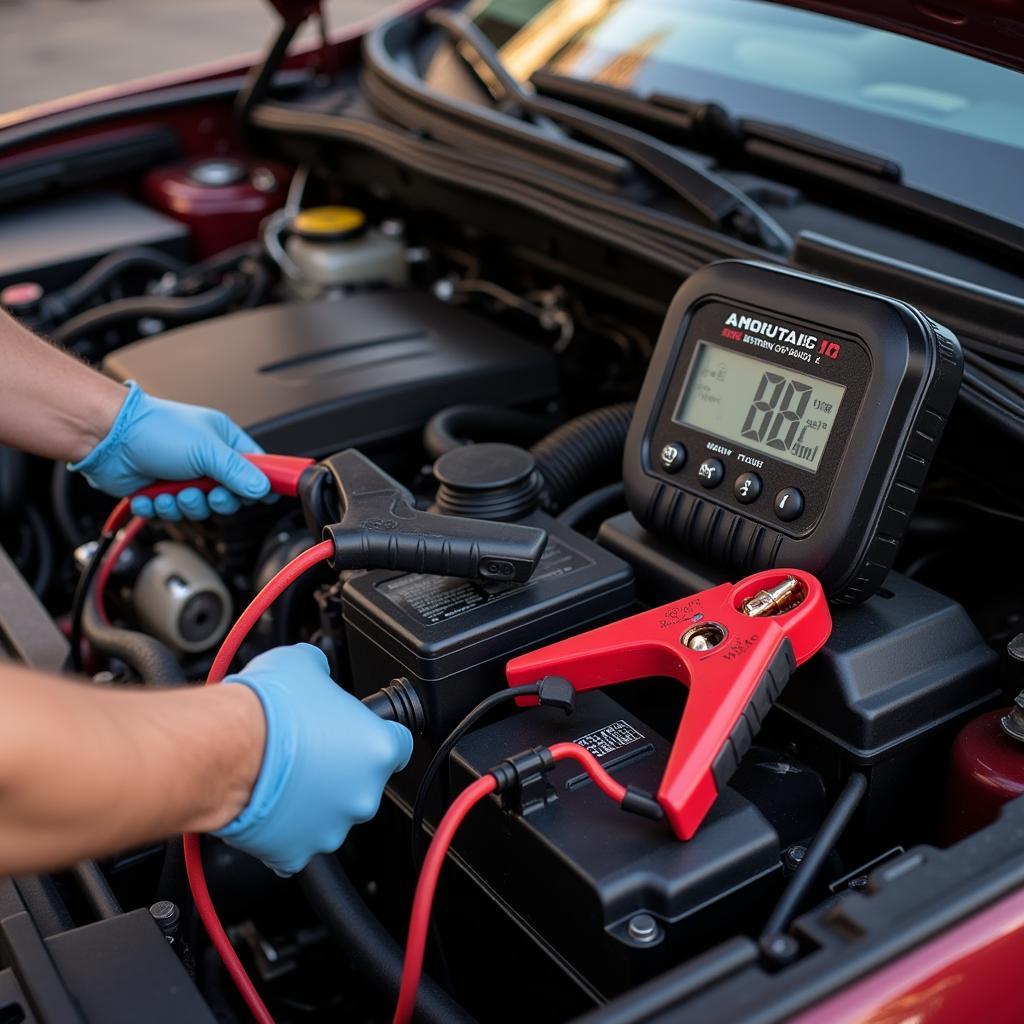A car horn is an essential safety feature that alerts other drivers and pedestrians of your presence on the road. When your car horn stops working, it can be a frustrating and potentially dangerous situation. This guide will help you understand the common causes of car horn failure and provide step-by-step instructions on how to fix the problem yourself.
Common Causes of Car Horn Failure
There are several reasons why your car horn might not be working. Here are the most common culprits:
- Blown Fuse: A blown fuse is the most frequent reason for a non-functional horn. Fuses protect electrical circuits from overloading, and a blown fuse is often the result of a short circuit or excessive power draw.
- Loose or Damaged Wiring: Loose or damaged wiring can interrupt the electrical signal to the horn. This can happen due to corrosion, wear and tear, or accidental damage.
- Faulty Horn Button: A worn-out or damaged horn button can prevent the horn from activating. This is common in older cars.
- Broken Horn: The horn itself can fail due to mechanical damage or excessive wear and tear.
- Faulty Relay: The relay acts as a switch that connects the horn to the battery. A faulty relay can prevent the horn from receiving power.
How to Troubleshoot a Car Horn Problem
Before you start troubleshooting your car horn, it’s essential to disconnect the battery to avoid electrical shocks. Here’s a step-by-step guide:
- Check the Fuse: Locate the fuse box in your car’s engine compartment or passenger cabin. Consult your owner’s manual for the location and fuse designation for the horn. Remove the fuse with a fuse puller and inspect it visually. If the fuse is blown, replace it with a new fuse of the same amperage.
- Inspect the Wiring: Check the wiring that connects to the horn button, the horn itself, and the relay. Look for any loose connections, broken wires, or signs of corrosion. If you find any problems, repair or replace the damaged wiring.
- Test the Horn Button: With the fuse and wiring in good condition, press the horn button and listen for a click. If you hear a click but the horn doesn’t sound, the horn button itself might be faulty.
- Test the Horn: If the horn button clicks, but the horn doesn’t sound, the horn itself might be broken. Check the horn for signs of damage or rust.
- Check the Relay: If the horn still doesn’t work, the relay could be faulty. Locate the relay and check its connections for any signs of damage or corrosion. If you find any problems, replace the relay.
Expert Tip: “Always use a multimeter to check the voltage and continuity of the electrical components before replacing them,” says John Smith, an experienced automotive technician.
How to Fix a Car Horn
Once you’ve identified the problem, fixing a car horn is relatively simple. Here’s how:
- Replace a Blown Fuse: If the fuse is blown, simply replace it with a new fuse of the same amperage.
- Repair or Replace Damaged Wiring: If the wiring is damaged, you can repair it by soldering the wires or replacing the damaged section with a new piece of wire. Secure the wiring with electrical tape or wire ties.
- Replace a Faulty Horn Button: If the horn button is faulty, you’ll need to replace it. This is usually a simple process that involves removing the old horn button and installing a new one.
- Replace a Broken Horn: If the horn is broken, you can replace it with a new horn. Ensure the new horn is compatible with your car model.
- Replace a Faulty Relay: If the relay is faulty, you’ll need to replace it with a new one. Ensure the new relay is compatible with your car model.
Expert Tip: “Always double-check the polarity of the wires when connecting new components,” says Mary Jones, a certified auto mechanic.
Tips for Preventing Car Horn Problems
Here are a few tips to prevent car horn problems:
- Regularly check fuses and wiring: Periodically inspect the fuses and wiring related to the horn for signs of damage or corrosion.
- Avoid excessive horn usage: Don’t honk the horn excessively, as this can lead to premature wear and tear on the horn and its components.
- Keep the car clean: Clean the horn button and surrounding area regularly to prevent dirt and debris from accumulating and causing problems.
FAQ
Q: My car horn sounds weak. What’s the problem?
A: A weak horn sound can be caused by a low battery, a faulty horn, or a clogged horn. Check the battery terminals for corrosion, replace the horn if necessary, and clean the horn if it’s clogged.
Q: My car horn sounds intermittently. What should I do?
A: An intermittent horn sound might indicate a loose connection, a faulty relay, or a worn-out horn button. Check the wiring, replace the relay, or replace the horn button if needed.
Q: How much does it cost to fix a car horn?
A: The cost of fixing a car horn varies depending on the cause of the problem and the repair needed. A blown fuse is usually a cheap fix, while replacing a faulty horn can be more expensive.
If you’re still having trouble with your car horn, contact AutoTipPro at +1 (641) 206-8880 or visit us at 500 N St Mary’s St, San Antonio, TX 78205, United States for expert assistance.






Leave a Reply